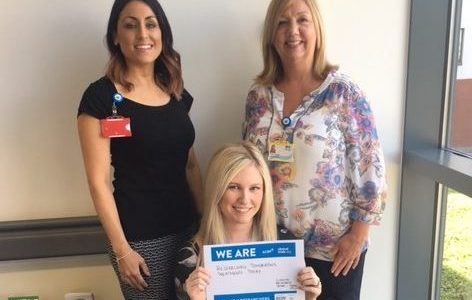Seven fold increase in research in NHS Forth Valley
The number of clinical studies and trials taking place in NHS Forth Valley has increased sevenfold in the last 15 years from 32 in 2004 to 210 in 2018. They include input into a number of national research programmes and have covered conditions as diverse as diabetes, Alzheimer’s, Crohn’s disease and frozen shoulder.
One of the latest studies has been carried out in conjunction with Guys and St Thomas’s Hospital in London and NHS Forth Valley was the only Scottish Health Board to be involved. More than 170 local people with ulcerative colitis or Crohn’s disease were recruited and asked about their diet. Questions centred on what types of food they could eat, portion sizes, whether they had to change their diet after diagnosis and what they now had to avoid, and the effects of their illness on mood and anxiety levels. The trial ran for a year and is now being evaluated.
NHS Forth Valley is also one of the top recruiting sites for an international trial on armpit treatment for early stage breast cancer, and has been part of the DiRECT study, funded by Diabetes UK and led by experts at Glasgow and Newcastle Universities. It has seen local dieticians helping people with the condition lose weight initially through an 800 calorie diet, and in some cases has led to remission and reduced the need for diabetes medication.
NHS Forth Valley Research and Development Officer, Allyson Bailey, explained: “Every new medicine and treatment starts with volunteers taking part in clinical trials and studies. We owe our high standards of medical care to the clinicians, scientists, academics and stakeholders who design, develop and carry out research, the participants willing to take part and the diverse teams who analyse the results. Even when researchers do not reach the outcomes they might have expected, the results can still help improve treatment, care and our understanding a wide range of conditions.”
The pioneering work in Forth Valley is being celebrated as part of International Clinical Trials Day on 20th May 2019, which commemorates the anniversary of the first clinical trial by James Lind in 1747, into the causes of scurvy on board the HMS Salisbury. The six day trial, involving 12 men, saw them given a variety of supplements from cider and vinegar to oranges and lemons, resulting in a noticeable improvement in those eating fruit.
For more information visit http://www.clinicaltrialsday.org/about





